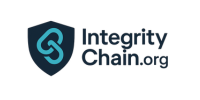Kickbacks and Conflicts of Interest in Startups: The Silent Drain on Trust and Capital

When we think of corruption, we often imagine government contracts or shady billion-dollar deals. But in startups, especially ones growing quickly and flush with investor money, kickbacks and conflicts of interest are increasingly becoming a hidden form of internal fraud.
Whether it’s a team member steering contracts to a friend’s agency or a founder getting “referral bonuses” from vendors they select, these quiet side deals can cost startups millions and destroy hard-earned trust. And more often than not, it’s a whistleblower, someone inside, who pulls back the curtain.
What Are Kickbacks and Conflicts of Interest in Startups?
- Kickbacks: Unofficial payments (cash, gifts, favors) given to employees or executives in exchange for directing company business to a vendor, partner, or service provider.
- Conflicts of Interest: When an employee or founder has a personal interest or financial stake in a decision they’re responsible for making on the company’s behalf, without disclosing it.
Examples include:
- Awarding a marketing contract to your cousin’s agency in exchange for a 10% “referral fee”
- Giving a product vendor preferred access to your roadmap because they gifted you a luxury trip
- Steering startup funds to a shell company secretly owned by an employee
- Using an investor’s portfolio company without disclosing boardroom pressure
These aren’t just “bad optics.” They can be fraudulent, violate fiduciary duties, and may be prosecuted under anti-bribery and corporate ethics laws, especially when public or institutional funds are involved.
Why Startups Are Vulnerable
Startups move fast, hire lean, and operate in close-knit circles. This creates fertile ground for unchecked conflicts:
- Informal procurement processes with no bidding or review
- Founder-led decision-making without oversight
- Early-stage investors pushing deals with portfolio companies
- Limited legal or compliance infrastructure
- Trust-based hiring of friends, ex-colleagues, or advisors
In the rush for growth, these red flags are often overlooked—until someone on the inside raises a concern.
How Whistleblowers Spot Kickbacks and Conflicts
Insiders are often the only ones close enough to connect the dots. Common signs:
- A vendor consistently overcharges, but never questions
- Unusual loyalty to low-performing contractors
- Decision-makers resisting audits or outside quotes
- Sudden shifts in preferred vendors without clear justification
- Leadership is pressuring teams to approve certain deals
Whistleblowers may be from finance, legal, operations, or even lower-level teams that are frustrated by unfair treatment. When internal reports are ignored or retaliated against, they may escalate to board members, the media, or even law enforcement authorities, such as prosecutors.
Recent Startup Scenarios
- A startup COO awarded a $1M logistics contract to a supplier he secretly co-owned. The fraud was discovered after a junior staffer noticed the company name on both sides of the payment trail.
- A founder steered multiple consulting gigs to a “friend’s” agency, which later turned out to be registered under his spouse’s name. The agency provided inflated invoices and vague deliverables.
- At a blockchain startup, key product integrations were sold to vendors in exchange for crypto kickbacks that never appeared on the books. The fraud came to light through an anonymous email sent to investors.
The Risks for Founders and Executives
- Loss of investor confidence once financial mismanagement is exposed
- Breach of fiduciary duty lawsuits by shareholders or board members
- Regulatory investigations (especially in fintech, healthtech, or gov-funded sectors)
- Reputational damage affecting talent, partnerships, or future fundraising
- Criminal liability in cases involving large kickbacks or public funds
Remember, even the appearance of a conflict can be toxic—especially during due diligence or exits.
How to Prevent Kickbacks and Conflicts in Your Startup
- Implement a vendor approval process
Require multiple bids for contracts above a threshold. Document decision-making. - Create a conflict-of-interest disclosure policy
Require founders, execs, and employees to disclose any personal connections to vendors, investors, or clients. - Separate decision-making roles
The person who benefits from a relationship should never approve the deal. - Audit high-value vendor relationships
Look for concentration (i.e., one vendor getting the lion’s share of contracts) or suspicious payment patterns. - Educate your team
Make ethics a part of onboarding. Provide clear examples of what’s acceptable and what’s not. - Create anonymous reporting channels
Allow employees to safely flag concerns. A culture of silence breeds fraud.
What To Do If a Kickback Scheme Is Discovered
- Immediately suspend the involved relationship
- Investigate internally or with external counsel
- Disclose findings to your board and, if public funds are involved, to the relevant authorities
- Recover funds where possible through clawbacks or legal action
- Discipline or remove the responsible individuals
- Communicate transparently with affected stakeholders (e.g., investors, teams)
Your response defines your culture—don’t let silence normalize corruption.
Final Thoughts
Kickbacks and conflicts are not just legal problems—they’re cultural ones. They signal that power is being used for personal gain, not company growth. In startups, where every dollar and decision matters, such behavior can erode trust faster than a funding freeze.
Whistleblowers aren’t adversaries—they’re often the only reason your company gets a second chance. If you want your startup to scale with integrity, start by building systems that also prioritize ethics.



